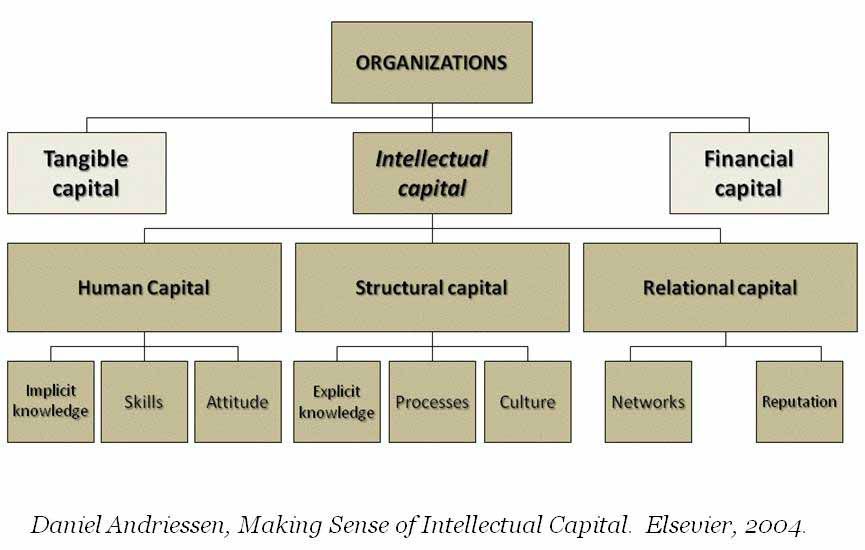Intelectual Capital

Ever since Adam Smith, capitalism hasn't just been about financial capital. Whether or not people are aware of it, companies deal every day with different kinds of capital. Besides money, we rely on human labor, on land, water, and energy, on machinery, on the community. There are different types of capitals some authors consider 5, others 6 and others up to more than 10 but this time we take three types of capitals that are related to Knowlegde management.

- Intelectual capital can be defined as the value of a company or organization's employee knowledge, skills, business training or any proprietary information that may provide the company with a competitive advantage. Is considered an asset, and can broadly be defined as the collection of all informational resources a company has at its disposal that can be used to drive profits, gain new customers, create new products or otherwise improve the business.
- Human capital: consists of people's health, knowledge, skills and motivation. All these things are needed for productive work.
- Stuctural capital: is the set of procedures, processes, and internal structures that contribute to the implementation of the objectives of an organization. It is the knowledge, abilities, experiences, and information, institutionalized, codified, and used through patent, data bases, manual, structure, system, mechanisms, routine and process that can support employees in the search of intellectual performance (Bontis, 1999; Youndt et al., 2004).
- Relational capital: is one of the three primary components of intellectual capital, and is the value inherent in a company’s relationships with its customers, vendors, and other important constituencies.
Bibliography:
Comentarios
